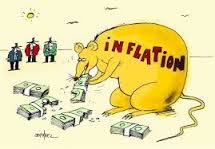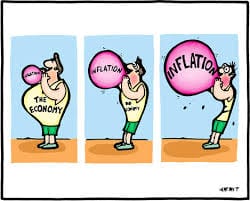Economy
Keeping Inflation in check

Read Time: 2 minutes
A low and stable inflation rate is required for stable economic growth. Sometime in future, the impact of the GST, the improved ease of doing business and a stronger domestic currency, will keep inflation low. But at present the short run we need to control the inflationary expectations.
The inflation rate dipped to 1.5% last month because of the effective monetary management by the political system. Inflation is an indicator of an excess demand or supply of goods.
Food prices are highly volatile. They should be kept low and stable by public procurement and a minimum support price policy. Inflation control thus involves:
- A combination of monetary management.
- Measures to increase supply of goods like anti-hoarding measures or the release of stocks by the government.
Last year, the government gave an inflation target to the RBI, called the “flexible inflation targeting.” This is supervised by the six-member monetary policy committee (MPC), with the Governor as the chairman. They have to counter Inflation causing factors like:
- The short run impact of the GST which is bound to be inflationary.
- The impact of the Seventh Pay Commission which will put pressure on prices.
- The waivers announced in some States which can cause fiscal stress.
- Worldwide increase in metals and food prices.






























